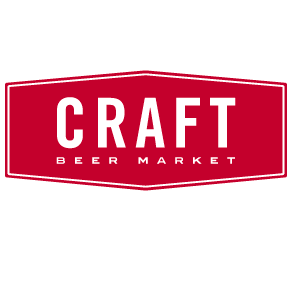Craft Beer Rescues Canadian Brewing Industries
Craft brewing businesses contribute to Toronto’s local economy and community.
By Jackie Marchildon, Staff Writer
 Steam Whistle’s Roundhouse downtown, Mill Street’s Brew Pub in the Distillery District and Amsterdam’s old Brewery on Bathurst Street are tough to miss in Toronto. They now serve as landmarks, but many people don’t know about the positive role craft breweries play in the local economy, and how little the “big three” craft brewers actually contribute to the industry.
Steam Whistle’s Roundhouse downtown, Mill Street’s Brew Pub in the Distillery District and Amsterdam’s old Brewery on Bathurst Street are tough to miss in Toronto. They now serve as landmarks, but many people don’t know about the positive role craft breweries play in the local economy, and how little the “big three” craft brewers actually contribute to the industry.
You can see Steam Whistle Brewery, located right by Toronto’s Rogers Centre, when you’re driving in and out of the city, next to its actual steam whistle, placed just outside the Roundhouse building. This whistle serves as a reminder to the brewery’s staff that when the workday ends and the bell sounds at 5:00 P.M., it’s time to relax and enjoy a cold one. Needless to say, the atmosphere in the Roundhouse during brewery tours is fun and relaxed.
When you enter into the architectural wonder that is the Roundhouse for a brewery tour, Steam Whistle staff greet you with smiles and — even better — beer samples. Enjoying the streaming sunlight through the windows, tour-goers are free to mill about the bar area while waiting to begin their tour. When the tour is announced, everyone gathers to listen to staff describe how the brewery was created and how the historical space came to belong to Steam Whistle.
After Sleeman Brewery bought out Upper Canada Brewing Company, many of Upper Canada’s old staff remained friends and reminisced about their days together at the brewery. One fateful camping trip, three young men were hanging out by a campfire when they decided they would start their own brewery. They resolved in the early morning hours that the name of their new brewery would be “3 Fired Guys.” The name later changed, but if you look closely at every bottle of Steam Whistle, you will see “3FG” embossed at the bottom of the bottle — “3 Fired Guys,” the first name of the now influential brewery.
“When Sleeman bought the brewery and closed it down, 110 of us lost our jobs, and we did other things for a number of years,” explains Sybil Taylor, wife of co-founder Greg Taylor and Steam Whistle’s first employee. “But we always kept in touch, a lot of the people kept in touch, and we had a desire to get back in the business.”
Of the original 16 staff members of Steam Whistle Brewery, 11 had worked together at Upper Canada, and according to Taylor, this allowed them to “hit the ground running.”
“The timing of starting our business was good in that there’s this world-wide trend right now to what I would call ‘the local food movement,’ where people are trying to support local producers,” Taylor comments. “And I think this is the same for craft beer… People are seeking it out. They want to know the producers. They want to come visit the brewery. They want to ask questions. They want to meet you. They want to understand your moral fibre because people are aligning their beliefs with their consumer activity.”
Undeniably, Steam Whistle’s tours are very informative and help consumers understand where the products are made and who exactly make them.
Not only are craft breweries like Steam Whistle involved with their consumers, but they are also locally oriented in that they pay municipal taxes, offer sponsorships to their communities and maintain a strong neighbourly presence.
According to the Brewers Association of Canada (BAC), its members generate at least $14 billion annually. “This includes the entire value chain, if you will, all the way from making the beer to the consumer consuming the beer,” says Luke Harford, president of the BAC.































Share the post "Craft Beer Rescues Canadian Brewing Industries"